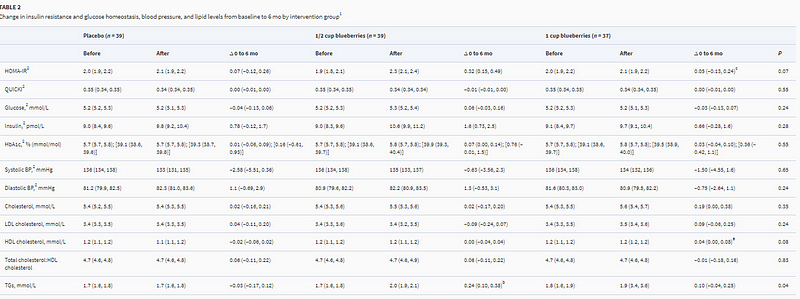Blueberries: Not the Heart Disease Savior You Think They Are
Written on
Chapter 1: The Myth of Blueberries as a Health Cure
Blueberries frequently make headlines as a potential remedy for a variety of health issues, ranging from diabetes and obesity to heart disease and even cancer. This trend raises questions: Is it their delicious taste, their somewhat pricey nature, or the extensive research backed by the U.S. Highbush Blueberry Council that fuels these claims? Perhaps it's a combination of all these factors.

In case you suspect I'm being overly skeptical, consider the official aim of the USHBC research: “Funding research into the health benefits of blueberries promotes these small fruits as essential for a balanced diet, thereby boosting their consumption.”
Section 1.1: The Latest Claims About Blueberries
Recent reports from various media outlets, including Forbes and the New York Times, suggest that consuming a small container of blueberries daily can substantially lower your heart disease risk by 15%. While this sounds impressive, the reality is far from it.

Section 1.2: The Research Behind the Claims
The study that sparked these claims was a randomized controlled trial assessing the impact of blueberries on heart health. Participants were divided into three groups: two received varying amounts of frozen blueberry powder, while one group received a placebo.

The study was well-designed, with a reasonable number of participants and a sufficient duration to observe effects. However, the results indicated that blueberry supplementation did not lead to any improvements in key heart health indicators compared to the placebo group.
Chapter 2: Understanding the Misinterpretation of Results
Despite the initial findings, the narrative quickly became convoluted. Some marginally significant results were reported in a smaller subgroup, suggesting a slight improvement in arterial stiffness and one type of cholesterol, but these findings were hardly compelling.

Section 2.1: Statistical Anomalies
The problem lies in the way results are interpreted. Just as you might flip a coin numerous times and eventually see heads, conducting multiple statistical tests can yield at least one positive result. This study was no exception, leading to the exaggerated claims about blueberries.

From the data, it appears that blueberries likely offer no benefits for managing blood pressure, blood sugar, cholesterol, or insulin levels. Any perceived benefits concerning arterial stiffness seem negligible, especially given that smaller doses actually worsened this outcome.
Section 2.2: The Influence of Funding
Despite the lack of substantial benefits, the study's sponsors focused on minor gains in secondary outcomes, which ultimately misled the media and the public. In reality, the study did not demonstrate any meaningful advantages for heart health, contradicting many media reports that claimed otherwise.

In conclusion, the assertion that blueberries can significantly reduce heart disease risk is unfounded. While they make for a delicious snack and can replace less healthy options, relying on them as a remedy for heart issues is misguided.
Enjoy blueberries for their taste, not as a panacea for heart disease. The evidence suggests they are unlikely to provide any real benefits in this area.